The 40 greatest synth sounds of all time, No 24: Kate Bush - Running Up That Hill
We'll help you make it to the top
Released in 1985 as the first single from her album Hounds Of Love, Running Up That Hill was the most successful of Kate Bush’s 1980s single releases, with a highest UK chart position of number three.
UK singer/songwriter Bush was a keen user of Yamaha’s seminal CS-80 synthesizer and Linn’s early drum machines, as well as being an early adopter of sampling, with the Fairlight CMI featuring prominently on a number of her records during the 1980s, including this one.
The main riff from Running Up That Hill was created by using one of the included cello samples from the Fairlight CMI, which was then manipulated by Kate Bush in various ways to create the main riff, as well as the backing strings.
To create our version of this iconic tone, we’ll be sampling a synth string from Cableguys Curve2CM, before manipulating it with our DAW’s sampler.
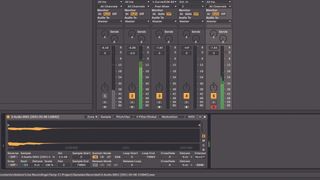
Step 1: Open Curve2CM, and the Air on Strings preset. Program in a short C3 MIDI note to trigger the patch, then record that to audio. Load the sampled string note in your DAW’s sampler. The original has a pitch bend baked in, so let’s recreate that first using the sampler’s envelope.
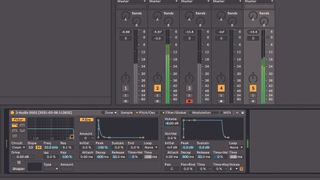
Step 2: Open the sampler’s pitch envelope, and set it up so that it bends the pitch of the sample by a max of 12 semitones. A short Attack of around 1ms, and a longer Decay time of around 500ms gives the initial pitch bend effect. Raise the sample by 6dB, so it sits with the drums.
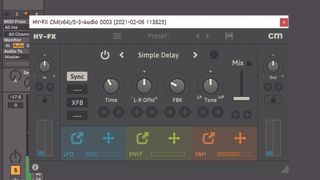
Step 3: A splash of effects will give more depth. Start by adding delay using the awesome HY-FX CM. Call up the Simple Delay effect, set the Timing to 1/16th then reduce Feedback to around 10 o’clock. Setting the Wet/Dry to 5% adds extra width/depth without swamping the riff.
Get the MusicRadar Newsletter
Want all the hottest music and gear news, reviews, deals, features and more, direct to your inbox? Sign up here.
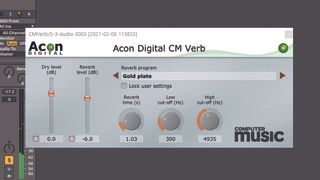
Step 4: 80s sounds need lashings of reverb, so add some using Acon Digital’s CMVerb. Load it onto the channel after the delay, and select the Gold Plate preset. Reduce Reverb Time to 1 second for a more direct sound. To finish the effect off, we’ll push the Low Cutoff up to 300Hz.


Computer Music magazine is the world’s best selling publication dedicated solely to making great music with your Mac or PC computer. Each issue it brings its lucky readers the best in cutting-edge tutorials, need-to-know, expert software reviews and even all the tools you actually need to make great music today, courtesy of our legendary CM Plugin Suite.
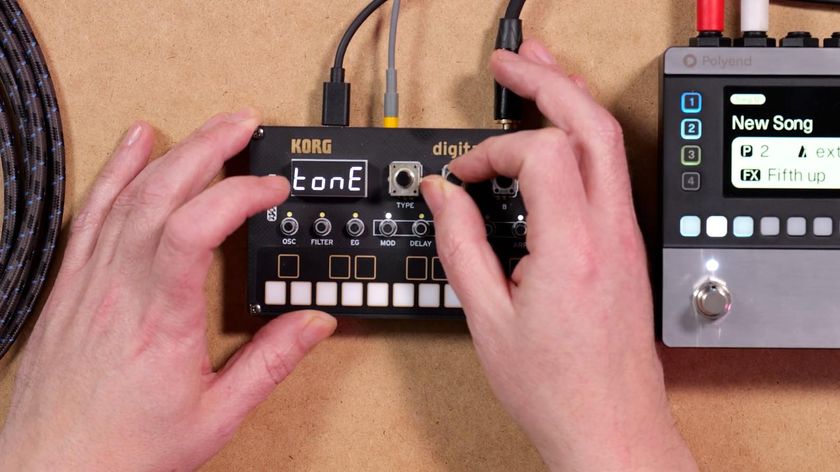
“I don’t know why I’m apologising for Korg on their behalf…”: There’s a lot we love about Korg’s latest DIY synth – but it has one significant problem for owners of the original
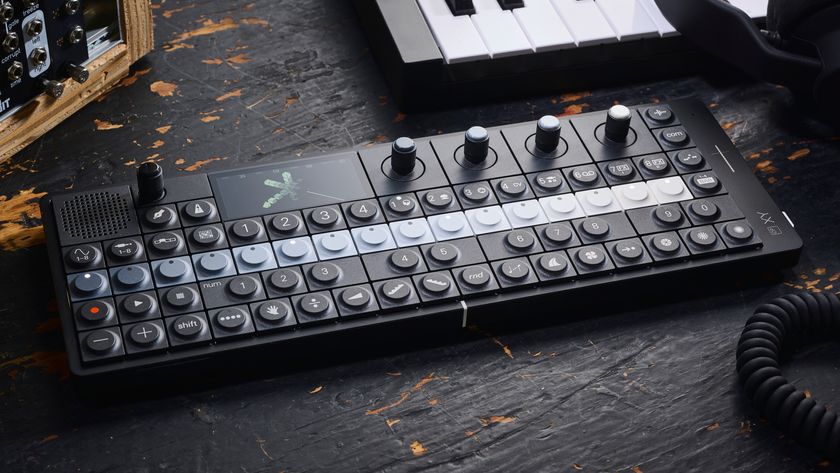
"It costs too much and we don't need it but, yes, we really do want one": Teenage Engineering OP-XY review
Most Popular








